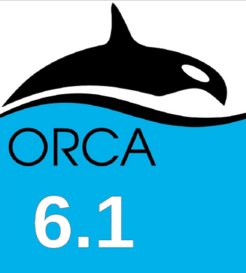A major step forward in computational quantum chemistry
ORCA version 6.1 released with significant performance and feature upgrades
Prof. Frank Neese, Director at the Max-Planck-Institut für Kohlenforschung, and his team released version 6.1 of the widely used quantum chemistry software ORCA. The new release brings important improvements in performance, usability, and scientific scope.

ORCA is a powerful tool for simulating chemical reactivity, spectroscopic behaviour and catalytic processes. It enables researchers to investigate complex molecular mechanisms at a level of detail often beyond experimental reach. “It’s exciting to see ORCA used by tens of thousands of scientists around the world, with growing impact in academic and industrial chemistry,” says Prof. Neese. “I’m deeply grateful to everyone whose expertise and dedication made this release possible.”
Version 6.1 includes a range of new features that broaden its capabilities and efficiency. Among the highlights are expanded support for magnetic property calculations at high-level ab initio methods, made possible by the group’s continued advances in automatic code generation. For large-scale simulations, modules such as GOAT, DOCKER, and the improved treatment of fragmentation simplify the setup of complex workflows. Another key innovation is the analytical computation of Raman intensities, which significantly reduces the cost of simulating Raman spectra, making such analyses feasible even for larger molecular systems. Complementing the scientific improvements, the ORCA user manual was thoroughly restructured to improve accessibility for both new experienced users.
The development of ORCA began in 1994 during Prof. Neese’s doctorate at the University of Konstanz. Since then, the software has grown steadily in scope and adoption. In 2016, he co-founded FACCTs GmbH to commercialize ORCA while keeping it freely available for academic use. In 2023 alone, the software was cited in over 3,300 scientific publications, reflecting its continued and growing relevance in the field.












